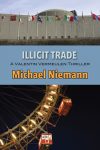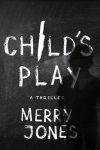

March 6 – 12: “Do thrillers contribute to the skepticism?
 Societies are increasingly doubting the expert opinions in science, politics, economics and more. Does the internet, or do thrillers, contribute to the skepticism? That is the question posed to this week’s ITW Members Lynn Chandler Willis, Michael Niemann and Merry Jones.
Societies are increasingly doubting the expert opinions in science, politics, economics and more. Does the internet, or do thrillers, contribute to the skepticism? That is the question posed to this week’s ITW Members Lynn Chandler Willis, Michael Niemann and Merry Jones.
~~~~~
 Lynn Chandler Willis has worked in the corporate world, the television news business (fun job) and the newspaper industry. She keeps coming back to fiction because she likes making stuff up and you just can’t do that in the newspaper or television news business. Her forthcoming novel, Tell Me No Lies, is the first in the three-book Ava Logan Mystery Series published by Henery Press. Her novel, Wink of an Eye: A Gypsy Moran Mystery, was a Shamus Award finalist and winner of the St. Martin’s Press/PWA Best 1st P.I. Novel competition. She is also the author of The Rising, a Grace Award top winner for Excellence in faith-based fiction, and the best-selling true crime, Unholy Covenant. She is a member of Sisters in Crime, International Thriller Writers, and the Randolph Writers. She lives in the heart of North Carolina with her shelter dog, Finn, a happy border collie who lives for the dog park.
Lynn Chandler Willis has worked in the corporate world, the television news business (fun job) and the newspaper industry. She keeps coming back to fiction because she likes making stuff up and you just can’t do that in the newspaper or television news business. Her forthcoming novel, Tell Me No Lies, is the first in the three-book Ava Logan Mystery Series published by Henery Press. Her novel, Wink of an Eye: A Gypsy Moran Mystery, was a Shamus Award finalist and winner of the St. Martin’s Press/PWA Best 1st P.I. Novel competition. She is also the author of The Rising, a Grace Award top winner for Excellence in faith-based fiction, and the best-selling true crime, Unholy Covenant. She is a member of Sisters in Crime, International Thriller Writers, and the Randolph Writers. She lives in the heart of North Carolina with her shelter dog, Finn, a happy border collie who lives for the dog park.
 Michael Niemann grew up in a small town in Germany, ten kilometers from the Dutch border. Crossing that border often at a young age sparked in him a curiosity about the larger world. He studied political science at the Rheinische Friedrich-Wilhelms Universität in Bonn and international studies at the University of Denver. During his academic career he focused his work on southern Africa and frequently spent time in the region. After taking a fiction writing course from his friend, the late Fred Pfeil, he switched to mysteries as a different way to write about the world. His first fiction publication was the story “Africa Always Needs Guns,” which appeared in the 2012 Mystery Writers of America anthology Vengeance, edited by Lee Child. Valentin Vermeulen, his protagonist, first appeared in that story. Check out his latest adventures in Legitimate Business and Illicit Trade.
Michael Niemann grew up in a small town in Germany, ten kilometers from the Dutch border. Crossing that border often at a young age sparked in him a curiosity about the larger world. He studied political science at the Rheinische Friedrich-Wilhelms Universität in Bonn and international studies at the University of Denver. During his academic career he focused his work on southern Africa and frequently spent time in the region. After taking a fiction writing course from his friend, the late Fred Pfeil, he switched to mysteries as a different way to write about the world. His first fiction publication was the story “Africa Always Needs Guns,” which appeared in the 2012 Mystery Writers of America anthology Vengeance, edited by Lee Child. Valentin Vermeulen, his protagonist, first appeared in that story. Check out his latest adventures in Legitimate Business and Illicit Trade.
 Merry Jones is the author of non-fiction (including BIRTHMOTHERS), humor (including I LOVE HIM, BUT…) and suspense (including the Zoe Hayes, the Harper Jennings and the Elle Harrison novels.) Her work has been translated into seven languages and has appeared in magazines including GLAMOUR, CHILD and AMERICAN WOMAN. Jones taught college level writing for over a dozen years, has appeared on local and national television and radio to promote her work. She is a member of ITW, Mystery Writers of America, The Authors Guild, and the Philadelphia Liars Club. She lives with her husband in Philadelphia.
Merry Jones is the author of non-fiction (including BIRTHMOTHERS), humor (including I LOVE HIM, BUT…) and suspense (including the Zoe Hayes, the Harper Jennings and the Elle Harrison novels.) Her work has been translated into seven languages and has appeared in magazines including GLAMOUR, CHILD and AMERICAN WOMAN. Jones taught college level writing for over a dozen years, has appeared on local and national television and radio to promote her work. She is a member of ITW, Mystery Writers of America, The Authors Guild, and the Philadelphia Liars Club. She lives with her husband in Philadelphia.
- LAST GIRL MISSING with K.L. Murphy - July 25, 2024
- CHILD OF DUST with Yigal Zur - July 25, 2024
- THE RAVENWOOD CONSPIRACY with Michael Siverling - July 19, 2024
